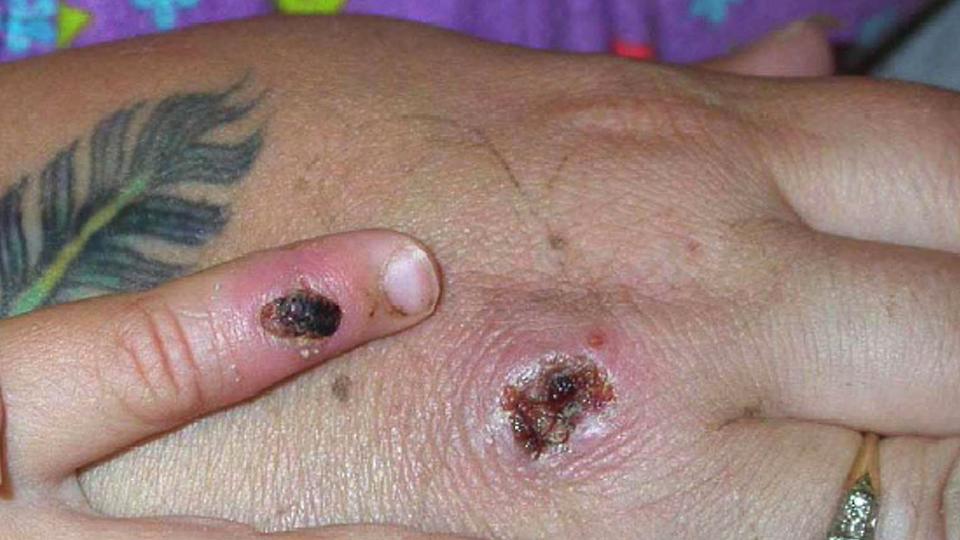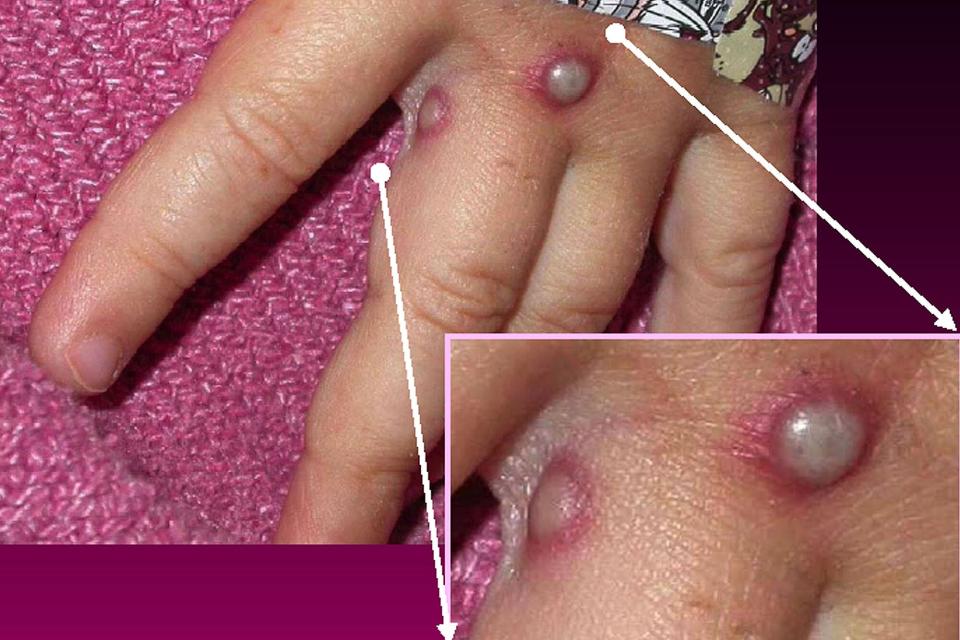What to Know About Monkeypox — Including How It Spreads — as the CDC Confirms a U.S. Case

Courtesy of CDC/Getty Images Monkeypox lesions
After multiple cases of monkeypox started popping up around the world, it has now reached the U.S., with a Massachusetts resident testing positive.
This isn't the first time the U.S. has seen cases of monkeypox. In 2003 there was an outbreak with 47 cases, according to the Centers for Disease Control. The virus, which is rare, was named after it was initially found in monkey colonies used for scientific research.
The virus is not typically seen in the U.S. or in Europe, and the CDC is "urging" health care providers in the U.S. to be alert for possible monkeypox cases. Here's what to know about the rare virus.
What is monkeypox?
Monkeypox was first identified in 1958 in colonies of monkeys, and the first human case of the virus was found in 1970 in the Democratic Republic of the Congo, according to the CDC.
Cases have mostly been concentrated to the Congo — which typically sees thousands of monkeypox infections a year — and Nigeria, where there have been 200 confirmed and 500 reported cases since 2017, according to the World Health Organization.

Getty Monkeypox
It's related to smallpox, which was around for centuries until an international effort to vaccinate people against the virus led it to be officially declared as eradicated in 1980, and the smallpox vaccine also works well against monkeypox.
What are the symptoms?
In most cases, monkeypox is mild. After an incubation period of seven to 14 days, the first signs are fever, headache, muscle aches, chills and exhaustion, and the main difference between it and smallpox is that monkeypox causes swollen lymph nodes. Around one to three days after those first symptoms, infected people will develop a rash, typically on the face, that then spreads to other parts of the body.
Most notably, the rash will turn into fluid-filled blisters that will eventually scab over after about two to three weeks.

Courtesy of CDC/Getty Images Monkeypox
In the Congo, around 1 in 10 people who contract monkeypox die, but that is not the case in the U.S. — no one has ever died due to the virus here.
"At this time, we don't want people to worry," U.S. Surgeon General Dr. Vivek Murthy told CNN. "These numbers are still small; we want them to be aware of [the] symptoms, and if they have any concerns to reach out to their doctor."
How is it transmitted?
Monkeypox can spread through a few methods — direct contact with body fluids or the blisters that pop up on the body can lead to transmission, but the main way is through respiratory droplets. While that might sound familiar after two and a half years of COVID-19, monkeypox does not spread as easily. Someone would have to be in prolonged contact with an infected person to contract monkeypox.
The CDC has said that the person infected in Massachusetts "poses no risk to the public," and had recently traveled to Canada, where officials are investigating 17 suspected cases in the Montreal area. The CDC is currently investigating another possible case in New York City. Both patients are currently isolated in the hospital and the Massachusetts resident is "in good condition."
RELATED VIDEO: The Importance of the COVID-19 Vaccine and the Call for 'Unity'
While the U.S. cases have been isolated incidents, Portugal, Spain and the United Kingdom have seen larger clusters of infections. The CDC said that "many of these global reports of monkeypox cases are occurring within sexual networks ... anyone, regardless of sexual orientation, can spread monkeypox."
"Healthcare providers should be alert to any rash that has features typical of monkeypox," Dr. Inger Damon, a poxvirus expert at the CDC, said in a press release. "We're asking the public to contact their healthcare provider if they have a new rash and are concerned about monkeypox."
How is it treated?
The virus typically resolves on its own, but there's no exact treatment. A dose of the smallpox vaccine does seem to improve symptoms if given soon after a person is infected, experts have found, and the CDC said that "in the event of another outbreak of monkeypox in the U.S., CDC will establish guidelines explaining who should be vaccinated."
Currently though, an outbreak seems unlikely, and the U.S. cases have been isolated, the CDC said. The 2003 outbreak was due to a shipment of animals from Ghana to Texas who then came in contact with prairie dogs sold as pets. Everyone who contracted monkeypox in the outbreak had been in contact with an infected animal, and did not get the virus from another person.

 Yahoo Finance
Yahoo Finance 